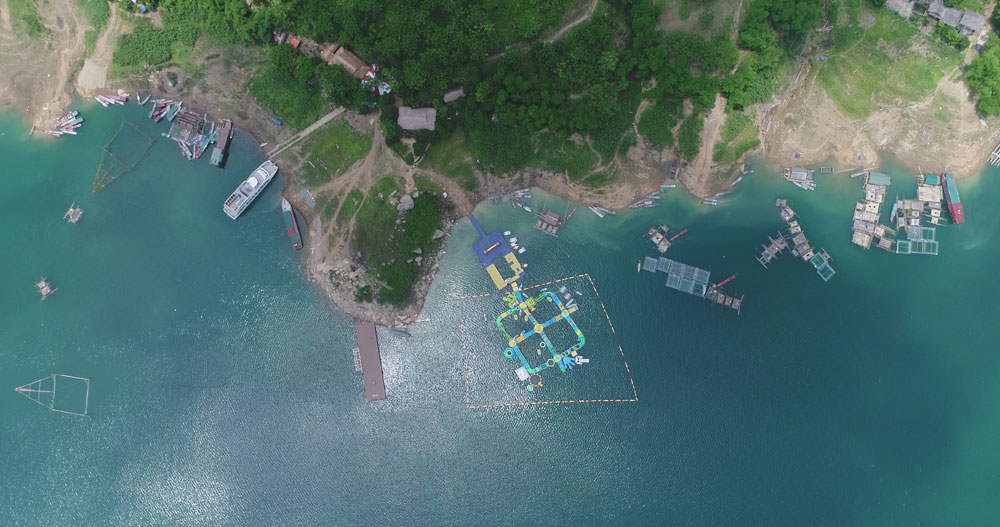
(HBO) - The Prime Minister has issued Decision No. 439-QD/TTg dated March 25, 2021 approving a master plan on building the Hoa Binh Lake national tourist site in the northern mountainous province of Hoa Binh till 2035. The province is directing the issuance of management regulations in accordance with the master plan, towards building a Hoa Binh tourism trademark and developing green and sustainable tourist products.

Hoa Binh Lake with scenic landscapes draws visitors. A corner of Ngoi
Hoa Bay, Suoi Hoa commune, Tan Lac district.
The master plan holds significance to the development of Hoa Binh Lake tourism.
The master plan and related planning are designed to turn the lake into an
attractive destination with diverse tourist and cultural products typical of
the northern midland and mountainous region. It is expected to serve about
1.6-2 million visitors by 2030 and 2.5-3 million by 2035.
According to Director of the provincial Construction Department Tran Hai Lam,
the master plan will lay an important legal framework to boost investment and
develop tourist products in the area.
The construction department is making recommendations to the provincial
People's Committee and coordinating with relevant ministries and sectors in
taking steps to implement the master plan, including making construction plans
for the site.
The Construction Ministry has asked the province to pay
attention to land use purpose and the change of purpose of forest land in the
area. Only projects with special and urgent use can use land in protective and
special-use forest and must comply with the Forestry Law.
When carrying out projects in the area, it is necessary to restrict the change
of natural terrain, carefully assess the impact on socio-economic development,
preserve to the utmost the local cultural identity and environmental landscapes
in line with legal regulations on environmental protection, and ensure national
defence-security, climate change adaptation, and the absolute safety of Hoa
Binh Lake and Hoa Binh hydropower plant./.
Located just a 20-minute drive from Hoa Binh City, Ora Hill Farmstay & Glamping Hoa Binh is a captivating new destination nestled in Mo hamlet, Bình Thanh commune, Cao Phong district. Combining farming with leisure, this tranquil retreat is perfect for those seeking balance, joy, and an immersive experience in the expansive beauty of nature.
Muong Bi - Tan Lac is renowned as one of the four famous Muong regions in Hoa Binh province. Blessed by nature with a favourable climate and stunning landscapes, Tan Lac holds great advantages for tourism development. The local tourism industry has made remarkable strides in recent times thanks to the attention and support from the local authorities and sectors.
With its strategic location, well-developed transport network, and diverse soil and climatic conditions, Hoa Binh is emerging as a must-visit destination in Vietnam's northwestern tourism corridor. The province boasts numerous attractions, including the Kim Boi hot springs (Kim Boi district), the Dau Rong cave complex (Cao Phong), the Mai Chau valley (Mai Chau), and the iconic Hoa Binh hydropower plant.
The northern mountainous province of Hoa Binh has been listed among the 71 most beautiful places to visit worldwide by the prestigious US travel magazine Condé Nast Traveller.
Hoa Binh province’s rich natural and cultural resources position it as a prime location for developing community-based tourism (CBT). In recent years, support from central and provincial policies, as well as assistance from non-governmental organisations, have encouraged local ethnic minority and mountainous communities to actively engage in the sector.



